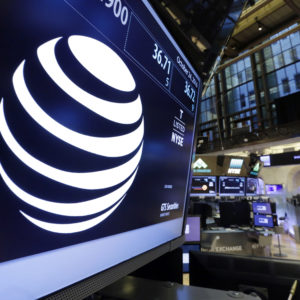AT&T is “very, very” supportive of new online privacy rules to require fellow internet providers and web companies like Google and Facebook to get permission from users before collecting their data.
A top executive for the wireless giant told C-Span in an interview to air Saturday that AT&T is backing a Republican House bill to give broadband subscribers and web users more control over their privacy, Multichannel News reports.
Bob Quinn, AT&T’s senior vice president of external and legislative affairs, reportedly told C-Span the company is “very, very” supportive of Republican Tennessee Rep. Marsha Blackburn’s BROWSER Act. The bill introduced in May would require ISPs like AT&T and Comcast, as well as edge providers like Google and Facebook, to get express opt-in consent from their users to collect data on their browsing habits, app usage, and other sensitive information used in targeted advertising.
“All of these companies should operate under the same rules,” Quinn told C-Span, especially since the lines are beginning to blur. Amazon is distributing video and Google is offering fiber connectivity, while on the other side, Verizon just bought web giant Yahoo and AT&T is in the middle of acquiring Time Warner.
He added it makes more sense to put them all under the same agency’s jurisdiction rather than divide them between two, and added its helpful for companies to operate under one set of rules. At least 17 states are working to establish their own privacy regimes. Such a “patchwork” of differing rules would be tough for companies to navigate, according to Quinn.
The BROWSER Act came after Blackburn led the charge in the House to repeal Obama-era Federal Communications Commission rules that placed the same requirement over ISPs exclusively, but left edge providers — the dominant players in the online targeted ad market — free of any such restrictions. FCC jurisdiction does not extend to edge providers, which are regulated by the Federal Trade Commission.
Republicans in Congress and those now in charge at the FCC and FTC said it was unfair to subject only one half of the online ecosystem to the rules, and subsequently repealed the FCC rules. Lawmakers on the right were quickly met with a wave of public backlash, and Democrats in favor of the rules vowed to turn the privacy issue into a 2018 election referendum.
In response, Blackburn proposed the BROWSER Act in May, and earlier this week accused Democrats of hypocrisy for declining to support the legislation. Some in the telecom industry speculate Democrat support would cost them Silicon Valley campaign donations that typically favor lawmakers on the left.
Democrats criticized the bill for placing all privacy enforcement in the hands of the FTC, which can’t establish preemptive rules but only enforce violations after they occur (the FCC can and did create such rules). Lawmakers on the left are also wary of a provision that prevents states from passing their own privacy restrictions and doubt Republicans’ sincerity in trying to advance the bill (to their credit, House Energy and Commerce Committee Chairman Greg Walden has declined to say whether he supports the BROWSER Act).
AT&T’s strong support for the bill makes the optics of opposition tough for edge providers like Google and Facebook, who have already come out against the legislation. Trade groups for those companies warn the bill will increase the amount of generic pop-up ads and erect paywalls for web services that are currently free.
Quinn said AT&T is less concerned about the advertising impact and more so with having equal regulation across the internet ecosystem.

